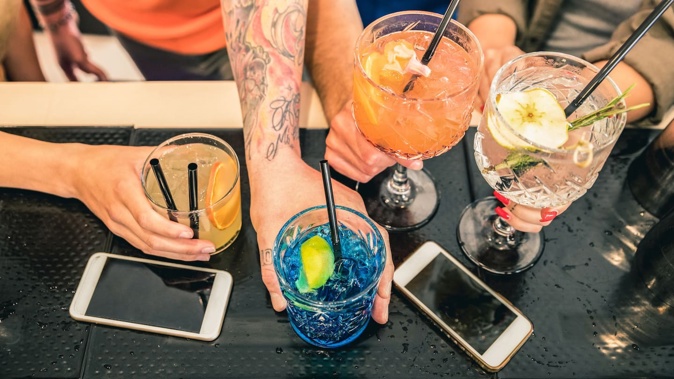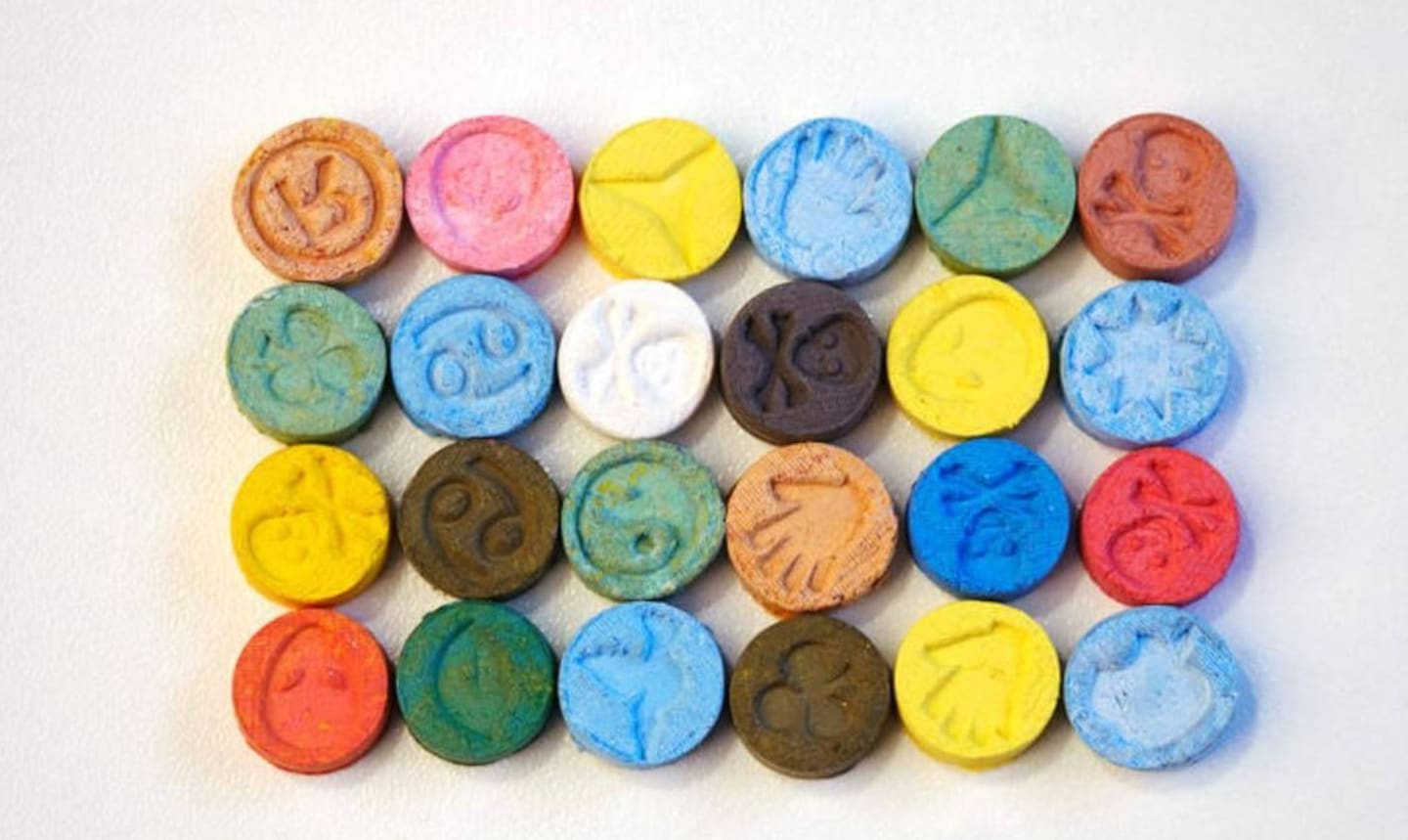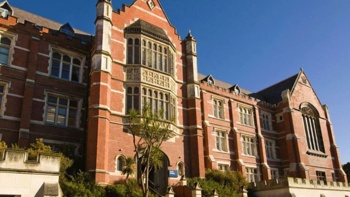
University students are increasingly turning towards recreational drugs, with some using MDMA several times a week. They say it’s cheap and helps them party longer. Dunedin-based Herald reporter Ben Tomsett reports on the changing social habits of our students.
Come the weekend, Dunedin’s infamous Castle St is plunged into a familiar rhythm punctuated by the revelry of inebriated scholars.
The city’s students have had a storied and at times toxic relationship with booze, though a change in behaviours and cultural norms is seeing the increasing consumption of alternative intoxicating substances.
Second-year University of Otago business students Tom* and Harold* said they drink at least twice a week, which is often supplemented by a relatively steady consumption of marijuana and MDMA.
For Tom, his drinking sessions are supplemented by drugs including MDMA about 40 to 50 per cent of the time, while for Harold it was closer to 70 to 80 per cent.
“The thing that makes it easy is it’s all on Castle St. So if you want to find a bump or anything, it’s literally just ask your neighbour,” Harold told the Herald.
While Harold estimated he had spent $1000 on alcohol and $1000 on drugs this year already – “our tolerances kind of went through the roof,” he said. Tom’s estimate was lower at about $600 on alcohol and nothing on party drugs.
“I haven’t bought ketamine or gear at any point in my life ... I’m typically just a vulture when it comes to those drugs, but I think I’ve spent around $200 on weed, which is for a half ounce and that’s given me about five weeks where I can smoke at least once every day,” he said.
“At this point, everyone smokes weed ... When you get back from the clubs, you smoke some weed and it just relaxes you and gets you ready for bed.”
Nationally, the consumption of alcohol took a sudden drop last year, by 4.3 per cent, which stands out against the 0.3 per cent drop in 2022 and the rise of 0.9 per cent in 2021.
Simultaneously, wastewater testing over 2022/23 showed that per capita, MDMA was used most commonly in the Southern Police district, which includes Dunedin – an average 375mg a day per 1000 people.

At O-Week in Dunedin last month, nearly 40 per cent of the MDMA tested by Know Your Stuff was found to contain synthetic cathinones, colloquially known as “bath salts”. Photo / 123rf
MDMA culture researcher and PhD candidate Jai Whelan said there had been a general shift in people’s attitudes and understanding towards drugs, including awareness of the risks involved.
“They’re a bit more aware of some of the classic lines around drugs, including MDMA, to be a bit overblown.”
Know Your Stuff general manager Casey Spearin said that as alcohol was one of the most powerful drugs in terms of the amount that’s consumed across the country, any reduction in that was generally a good thing – though if students were choosing drugs, she strongly encouraged them to get theirs checked.
While at O-Week in Dunedin last month, nearly 40 per cent of the MDMA tested by Know Your Stuff was found to contain synthetic cathinones, colloquially known as “bath salts”, which are more harmful than MDMA, she said.
“While often substituted for MDMA, it can be quite harmful,” Spearin said.
“People can take three or four doses by accident if they think that it’s MDMA, and at the far end of that scale, they can go into psychosis.”

University students say a gram of MDMA can cost about $200 to $300 in Dunedin. Photo / 123rf
Both students who spoke to the Herald said they had their first experiences with marijuana in high school, though in their second year at university its use became an omnipresent factor of student life.
The Herald is also aware of other Dunedin students who are increasingly using drugs while out partying with their peers.
“Ketamine is also becoming very popular, especially this year compared to last year. Ketamine’s in the clubs,” Harold said.
As a gram of MDMA could go for about $200 to $300 in Dunedin, the pair said it was fairly common for students to pool together resources to afford the drugs.
“It does depend on your financial situation. Obviously, you won’t see someone who’s entirely off student loans going and grabbing some ketamine. But if you’ve got a big group of boys who are on student loans, they might decide that they’ll save a certain amount over a couple of weeks, and then they’ll have a big blowout moment.”
A blowout moment would typically be reserved for an event such as a concert or St Patrick’s Day tomorrow, in which some students may have been saving money for a few weeks.
Harold said on a day like St Paddy’s he’d likely make it through a 24-pack of standards, followed by a 12-pack and a 1.25-litre bottle of Nitro.
Tom said there were typically three methods of sourcing drugs: You have the money to purchase it yourself; you split it with a friend or group; or simply walk around and ask people.
“Eventually you’ll come across someone who has some ... That third option is very common now,” he said.
“We’re not seeing any crack or meth or anything. I think the most intense thing you’d find would be acid, but that’s very uncommon.”
The pair agreed MDMA felt like a comparatively safe drug of choice in Dunedin due to the city’s built-in party culture.
“They don’t need to cut the drugs with more to make it addictive or to fill up the bag, because they’re getting so many regular sales that they’re not needing to do anything to try and augment it ... And I always make sure to get mine tested.”
While at-home drug testing kits were available as well as the publicly funded drug-checking programme Know Your Stuff, the pair said verbal recommendations of drug sources were also their way of ensuring the product’s safety.

The University of Otago says substance abuse can be a concern for all tertiary institutions.
The pair agreed drug use had become prevalent within the student culture due to the increasing decentralisation of student watering holes such as legendary old student pubs Gardies, Starters Bar and the Captain Cook Tavern.
“Because we’re on our own, and we’re partying on our own, it’s a closed environment. And the culture is just to have drugs.”
Reflecting on the widespread drug use, both agreed the situation was “bad”.
“As university students who, at our core, are just trying to study through the day and have fun whenever we can, we want the nights where we’re having fun to be a big reward for all the hard work we put into the study,” Tom said.
“If you’ve worked hard, you might as well play hard, and what’s better to play hard than a powder that by sniffing it a little, you’ll be awake for the next five hours full of energy, ready to party, and the perfect mood for socialising and having the best time possible ... It’s a little bit of a shortcut.
“You can’t expect 1000 students to sit through lectures, tutorials, computer labs, and practicals for an entire week to get to the end of that week at our age with our hormones and stuff, you can’t expect us to not try to find a way to let loose and get some stress out and there’s just nowhere to go.
“And there’s nothing better for us to do than buy some drinks and some drugs and go out into the street.”
A University of Otago spokesperson said the university took the wellbeing and safety of its students extremely seriously and any reports of unsafe drug use, including MDMA, were of concern.
“Our priority is to create a supportive environment where students can thrive both academically and personally.
“We understand that some students take recreational drugs and substance abuse can be a concern for all tertiary institutions. We have systems in place to address substance abuse issues including education, prevention and support services for any students who may be struggling. We work closely with OUSA [Otago University Students’ Association] and drug-checking provider, Know Your Stuff.”
While the university could not control individual behaviours, it was committed to fostering a culture that promoted responsible decision-making and supported the wellbeing of all of its students, they said.
* Names of the students were changed to protect their identity.
Ben Tomsett is a multimedia journalist for the New Zealand Herald, based in Dunedin.
Take your Radio, Podcasts and Music with you









